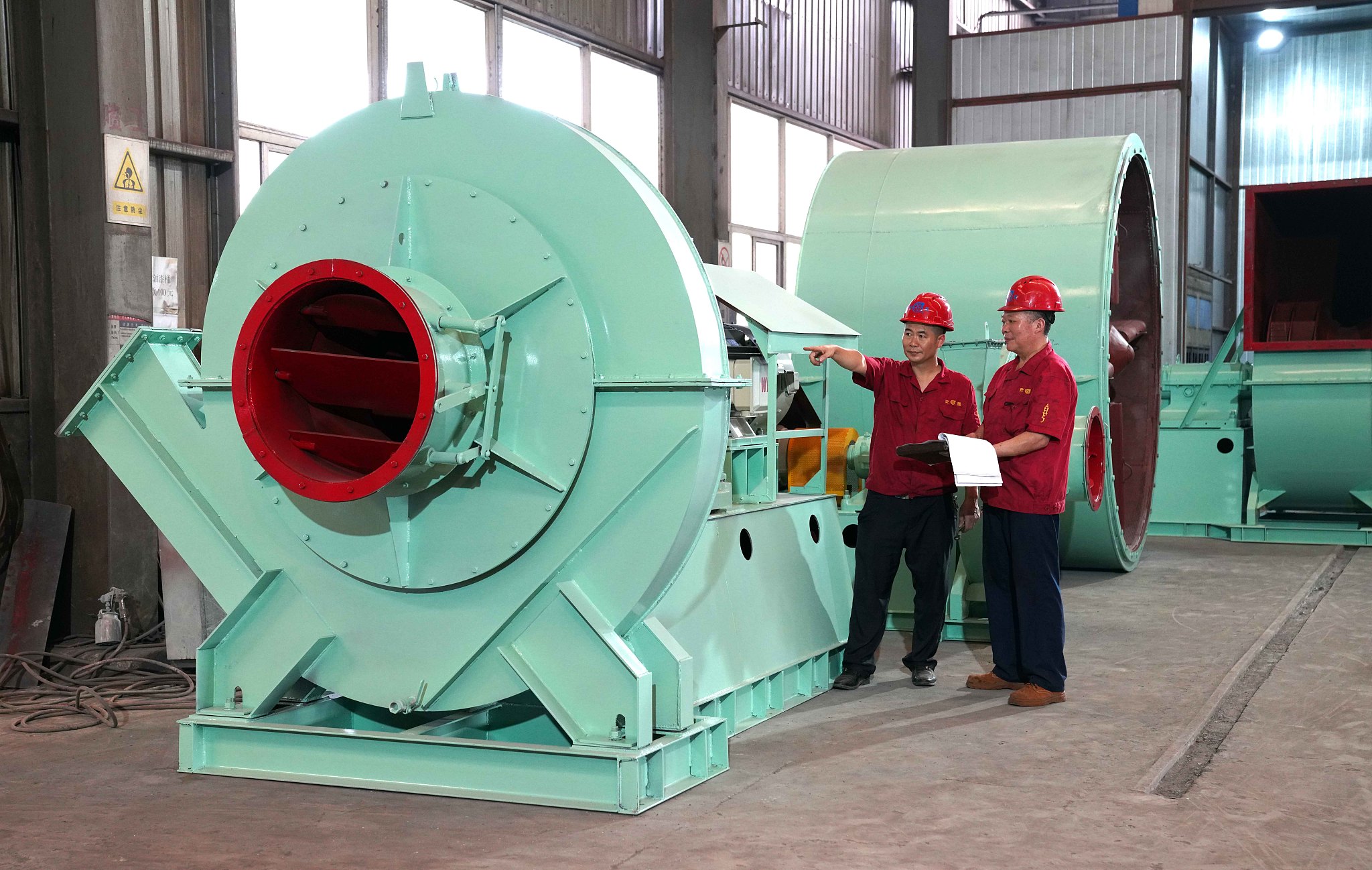
Beijing Stock Exchange. /CFP
Beijing Stock Exchange. /CFP
Editor's note: Alexander Ayertey Odonkor is an economic consultant, chartered financial analyst and chartered economist with an in-depth understanding of the economic landscape of countries in Asia and Africa. The article reflects the author's opinions and not necessarily the views of CGTN.
The Beijing Stock Exchange opened its doors for registration of investors on September 17, 2021. The new stock exchange is the Chinese mainland's third bourse after the Shanghai Stock Exchange (SSE) and the Shenzhen Stock Exchange (SZSE), which were established in 1990.
Designed to support innovative startups and high-growth small and medium-sized enterprises (SMEs), this securities market has been instrumental in strengthening access to finance for SMEs in China.
While SMEs are an integral component of the Chinese economy, the growth of some of these businesses is usually hampered by financial constraints – a major challenge that the global economy has been grappling with for many years. Considered as the backbone of any development model, a robust SMEs sector fosters innovation and promotes an inclusive green growth which is essential for achieving sustainable development. Typically, SMEs represent the largest share of all enterprises; this situation is not different in China.
In China, SMEs account for over 90 percent of all businesses, provide 80 percent of total jobs and contribute more than 60 percent of the country's gross domestic product (GDP).
Serving as an engine of growth and a major driver of innovation, the collective contribution of SMEs to China's patents exceeds 70 percent of the country's total.
As a result of the considerable contribution of SMEs in research and development (R&D), China once again emerged as the world's top filer of international patents in 2020 with 68,720 applications, representing a 16.1 percent increase over the previous year.
In spite of the significant contributions of the SMEs sector to the Chinese economy, the growth of many of these enterprises has been retarded mainly as a result of financial constraint, which is limiting the innovation capacity of SMEs in the country. However, in recent years policymakers in China have been consistent in their approach to address this exigent challenge in an effort to spur innovation and boost inclusive growth.

A worker adjusts equipment in a factory of Hefei, capital of east China's Anhui Province, September 9, 2021. /CFP
A worker adjusts equipment in a factory of Hefei, capital of east China's Anhui Province, September 9, 2021. /CFP
For example, in 2019, the Chinese government announced measures to reduce taxes and fees by more than 300 billion Chinese yuan ($44.7 billion) with the ultimate objective to foster growth and innovation in the SMEs sector. To achieve this, a tax cut on R&D was increased by 25 percent, thus from 50 percent to 75 percent and value-added tax (VAT) was decreased by 3 percent for manufacturers and 1 percent for the transport and construction sector.
Again, to improve innovation in the SMEs sector, in the first quarter of 2021 the Ministry of Finance and the National Intellectual Property Administration launched a patent transfer plan to support innovation. The three-year plan offers a financial reward of about $15 million to provincial-level regions that have excelled in promoting patent technology transfer from SMEs in the country.
All these evidence-based policies and other initiatives have been implemented effectively to provide a solid groundwork for the successful operation of the Beijing Stock Exchange. Generally, while the bourse will strengthen China's capital market, it will also be an invaluable resource for the SMEs sector to replenish lost financial and innovation capacity, particularly as the disruption created by the COVID-19 pandemic has left a footprint on supply chains and desecrated economic activity worldwide.
Through the services of the Beijing Stock Exchange, the SMEs sector will be able to access another window of opportunity that will serve as a catalyst in the country's economic recovery from the pandemic.
The financial provision that will be offered by the exchange will not only augment the finance, research and development capacity of SMEs but it will eventually bolster inclusive growth by creating more job opportunities in the SMEs and other related sectors, ameliorate inequality and support sustainable development by creating more climate-resilient technologies.
In fact, the economic, social and environmental benefits that could be derived from the Beijing Stock Exchange's goal to drive innovation and growth among SMEs will not be limited to China.
This is true because countries around the world are importing Chinese clean energy equipment, technical expertise and other climate-resilient technologies that are improving efforts to build infrastructure across all the regions of the world to achieve the United Nations Sustainable Development Goals (UN SDGs).
These technological products that are produced by SMEs in China are assisting countries that are susceptible to climate change to protect lives and livelihood.
Again, the scientific contribution of SMEs in China is advancing global cutting-edge research which is promoting innovation, stimulating inclusive growth and ultimately supporting sustainable development worldwide.
(If you want to contribute and have specific expertise, please contact us at opinions@cgtn.com.)

